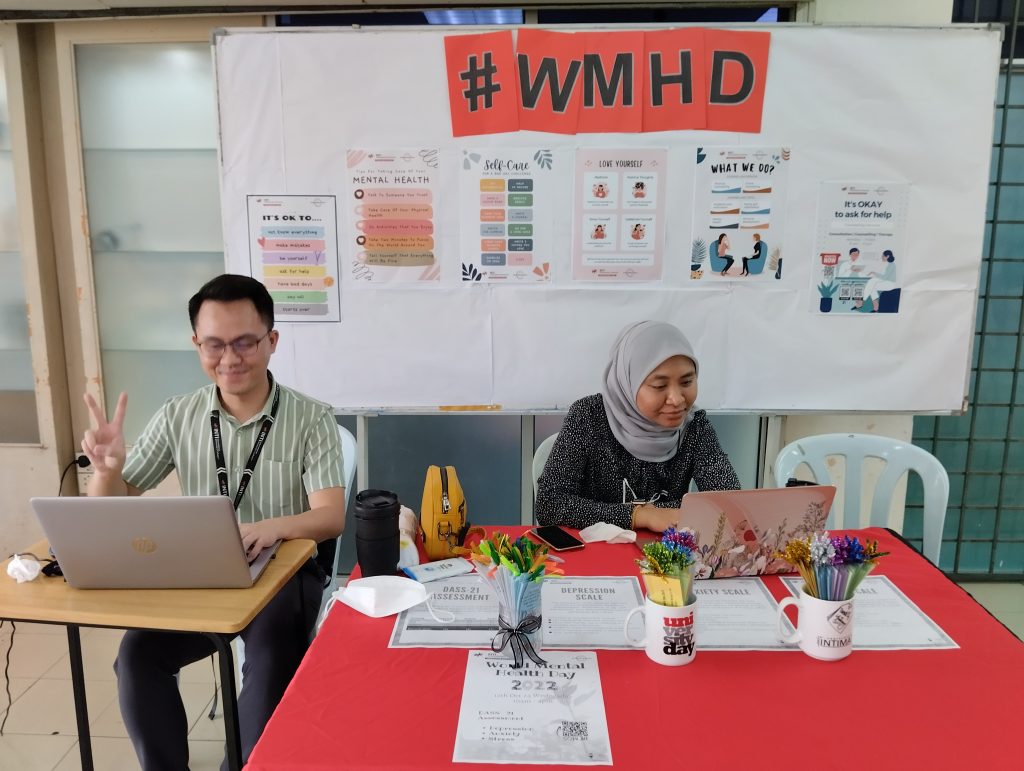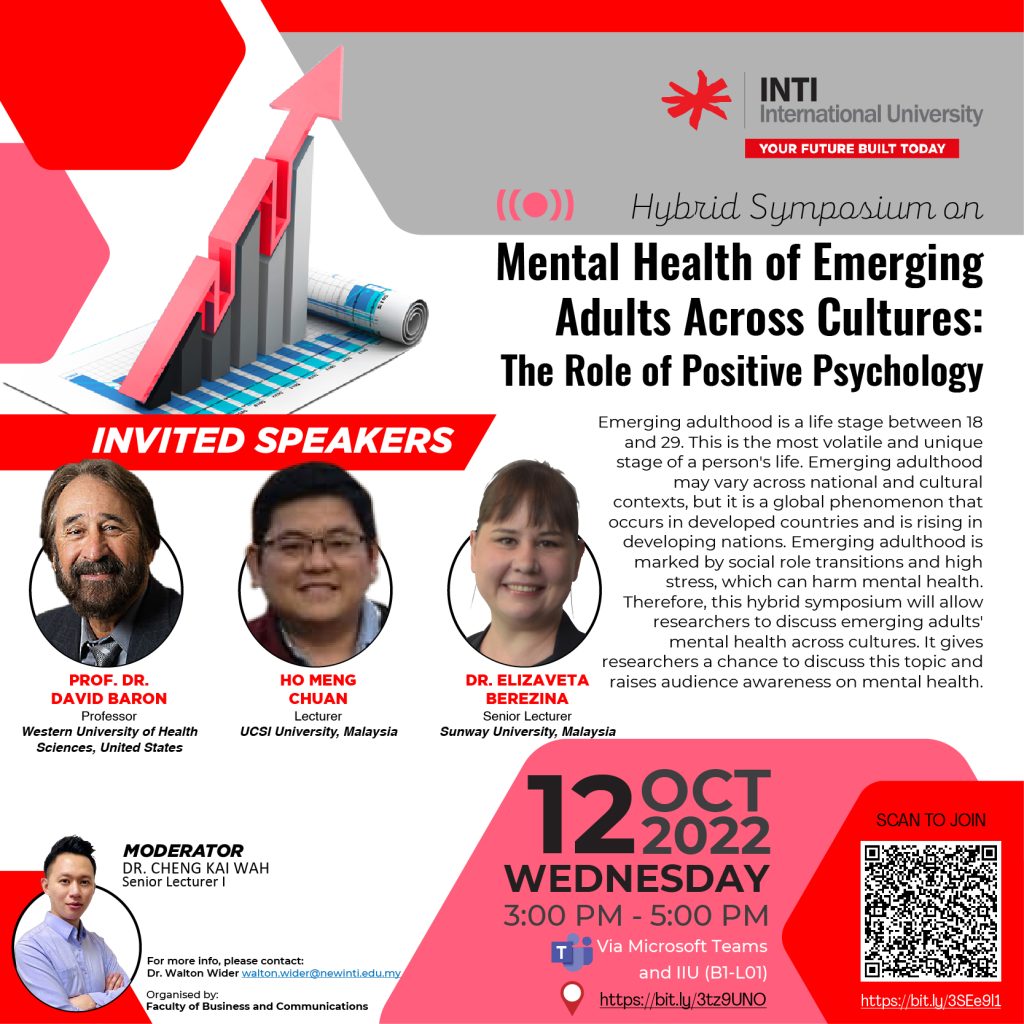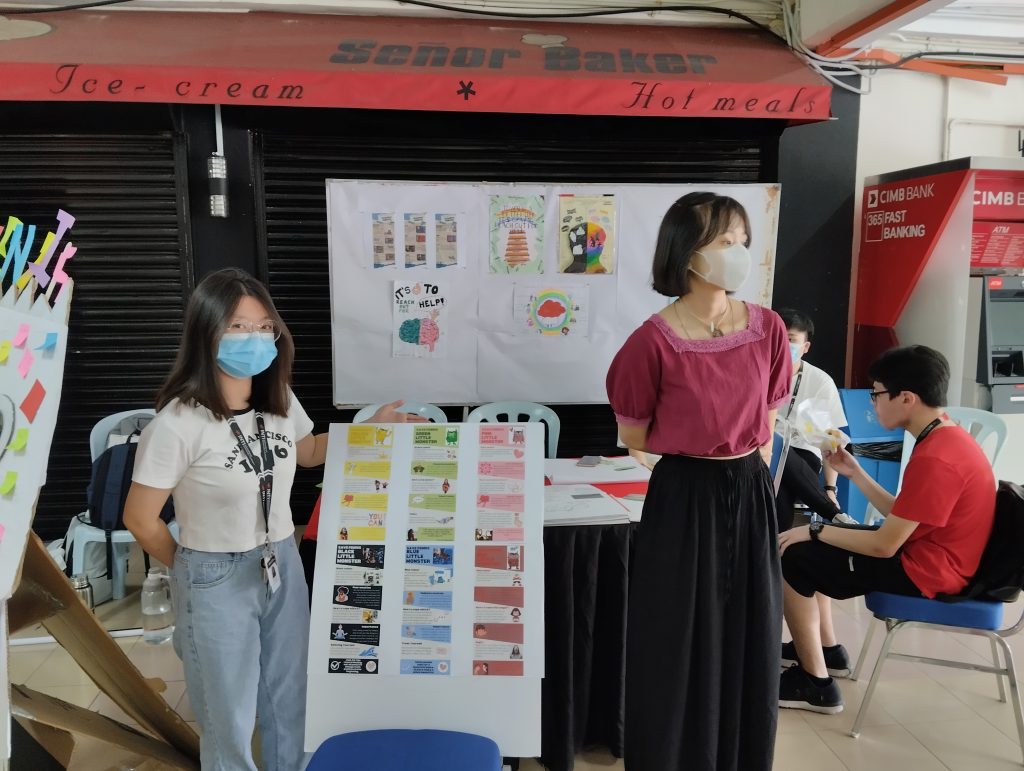By Rubendran Sathupathy
In line with the World Mental Health day, INTI International University organised a Mental Health Day on 12 October at the Students Centre to create awareness about mental conditions and reduce stigma.
Organised by Counselling Centre the event saw students leaving post its of encouragement as well as posters with signs to identify depression.

According to organizer Senior Lecturer Dr. Walton Wider, from Faculty of Business and Communications (FBC), although many people is aware of a healthy physical condition, many more neglect their mental health.
“During Covid pandemic, many people suffered from mental health conditions due to the social isolation derived from the lockdowns,” he added.

According to the World Health Organization (WHO) “In the first year of the COVID-19 pandemic, global prevalence of anxiety and depression increased by a massive 25%,” hence the need to create awareness about the signs of these conditions.
As part of the activities organised by the committee, there was a symposium that saw speakers from the US, the UK, Russia and Malaysia talking about Positive Psychology among Emerging Adults.

Positive psychology focuses on being able to be positive even in adverse circumstances.
As emerging adults are still at stage of developing their brain, they are not fully equipped to handle their mental health by themselves, hence the aim of the symposium was to equip them with the necessary skills to face challenges.
Dr. Wider highlighted that generally speaking people do not realized that mental health affects their physical health as well, “because when one has depression, one only wants to stay indoors or even refuse to eat, affecting the physical health directly.”

Finally he urged students and staff to seek help or visit the Counselling Centre at the university, as we are aware that Asian culture still stigmatized mental health.
“Is up to all of us to break the cycle,” Dr. Walton emphasized.
